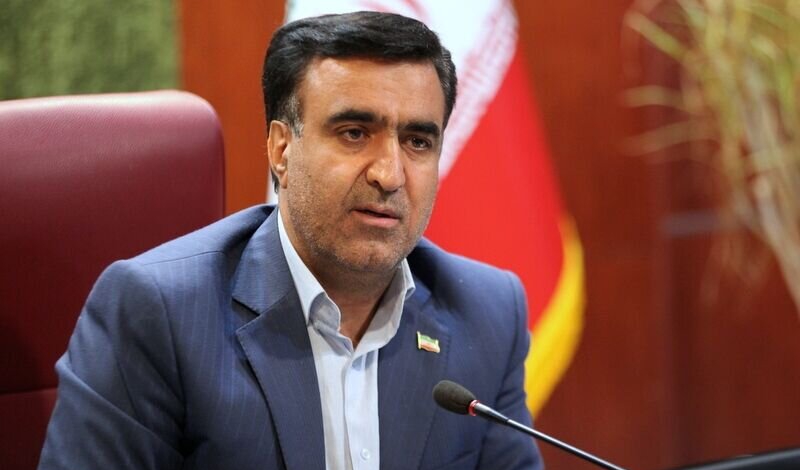Thursday 17 November 2022 - 20:19
Story Code : 401749
Iran has taken great steps toward sustainable development despite sanctions
He made the remarks at the 27th United Nations Climate Change Conference (COP 27) which is underway in Egypt from November 6 to 18.
The emergence of economic terrorism is an emerging threat to sustainable development. The unjust economic coercive measures imposed on my country have targeted the well-being and health of our citizens.
Such actions have seriously limited access to and transfer of relevant technologies and equipment that are essential to national mitigation and adaptation efforts as well as air quality improvement, he stated.
These coercive measures, illegal and unilateral sanctions, in clear contradiction to the global sustainable development agenda and relevant multilateral agreements, have implications beyond the borders and thus contribute to global warming, he added.
Our collective efforts must be accompanied by results that have practical guarantees for the sustainable development of developing countries, he highlighted, adding, as the Islamic Republic, we are ready to participate constructively in the negotiation process.
He went on to note that climate change is a challenge with serious implications for all countries around the world, and flexibility for developing countries is the key to success in major areas such as mitigation, adaptation, and capacity building.
The coercive measures and sanctions, in clear contradiction to the global sustainable development agenda, have implications beyond the borders. It is important to remember the principles of the Convention, especially the Common but Differentiated Responsibilities (CBRD) as well as the historical responsibilities of developed countries.
We value shared responsibility for shared capacities. Therefore, a country that has less access to international capacities will have less responsibility, he stated.
According to the latest IPCC-WGI (November 2022) monitoring of the state of the climate, including precipitation and temperature, an increasing trend of extreme weather events such as heavy rains and heat waves is observed in West and Central Asia by 2100.
In addition, regional studies show that extreme weather such as floods, droughts, and sand and dust storms have become more frequent and severe in many parts of the world, which are serious threats to human health and the environment.
History tells us that win-win approaches last longer. Let's consider the concerns of all parties. Collaborative approaches in reducing and adapting to climate change should be inclusive and beneficial for all, developed countries have pledged to be pioneers in reducing greenhouse gas emissions and support developing countries in the form of financing as well as technology transfer.
The special situation of developing countries needs to be better investigated and recognized, providing adequate, timely, and predictable support to developing countries is critical. Capacity building in developing countries allows them to expand their participation in tackling climate change.
The current energy crisis in Europe and other regions of the world confirms that the energy system while having elements of sustainability in terms of environmental issues, should focus on other aspects such as affordability and availability, Salajeqeh said.
Our climate strategies must always be comprehensive, balanced, inclusive, and fair. Adopting only one or two options strategies and moving in favor of a single energy source leads to energy instability and more energy poverty.
It does not seem possible to completely eliminate fossil fuels in the short and medium term. Therefore, investing and developing the use of low-carbon fuels such as natural gas and building systems with high energy efficiency can play a sustainable role in providing energy security and sustainable development, he concluded.
The delegation of Iran is scheduled to participate in the ministerial meeting to present a national statement and also conduct bilateral meetings with the ministers of neighboring countries and heads of international organizations on the sidelines of the meeting.
A new report from UN Climate Change shows countries are bending the curve of global greenhouse gas emissions downward but underlines that these efforts remain insufficient to limit global temperature rise to 1.5 degrees Celsius by the end of the century.
A second UN Climate Change report on long-term low-emission development strategies, also released, looked at countries� plans to transition to net-zero emissions by or around mid-century.
The report indicated that these countries� greenhouse gas emissions could be roughly 68% percent lower in 2050 than in 2019 if all the long-term strategies are fully implemented on time.
The report notes, however, that many net-zero targets remain uncertain and postpone the future critical action that needs to take place now. Ambitious climate action before 2030 is urgently needed to achieve the long-term goals of the Paris Agreement.
COP 27 is the moment when global leaders can regain momentum on climate change, make the necessary pivot from negotiations to implementation, and get moving on the massive transformation that must take place throughout all sectors of society to address the climate emergency.
By TEHRAN TIMES
# Tags











